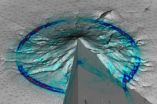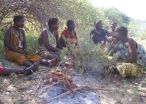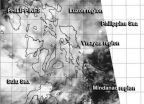(Press-News.org) LOS ANGELES – (April 15, 2014) – With growing evidence that a measurement of the buildup of calcium in coronary arteries can predict heart disease risk, Los Angeles Biomedical Research Institute (LA BioMed) researchers found that the process of "calcium scoring" was also accurate in predicting the chances of dying of heart disease among adults with little or no known risk of heart disease.
Previous studies had found that calcium scores were effective in predicting heart disease among adults with known heart disease risk factors, such as hypertension, diabetes, dyslipidemia, current smoking or a family history of heart disease. The study conducted by LA BioMed researchers examined 5,593 adults with no known heart disease risk or with minimal risk of heart disease, who had undergone coronary artery calcium screening by non-contrast cardiac computed tomography from 1991-2011.
Normally, the coronary arteries don't contain calcium. A buildup of calcium can narrow the arteries to the heart and lead to a heart attack. The screening process results in a calcium score indicating the amount of calcium in the plaque lining the walls of the coronary arteries.
Among the adults in the study, even those with low coronary artery calcium scores of 1-99 were 50% more likely to die of heart disease than adults with a calcium score of zero. Adults with moderate scores of 100-399 were 80% more likely to die from heart disease than those with a score of zero, and those with scores of 400 or more were three times more likely to die from heart disease, when compared to adults with no calcified plaque buildup, or a score of zero.
"This long-term study builds on previous research conducted at LA BioMed and other institutions that have proven the effectiveness of coronary artery calcium screening in predicting heart disease risks," said Matthew J. Budoff, MD, one of the LA BioMed researchers who conducted the study. "Normally, calcium scoring is only recommended for patients with known heart disease risks. These findings suggest that calcium scoring can be an effective tool for assessing heart disease risks in adults with no known risk factors so that they can make the lifestyle and other changes that can help them avoid heart disease in the future."
Dr. Budoff and Rine Nakanishi, MD, PhD, presented these findings at ACC.14, the annual scientific session of the American College of Cardiology in March, along with other researchers whose studies also found coronary artery calcium screening accurately predicted the risk of future heart disease.
INFORMATION:
Other LA BioMed researchers participating in the study were Dong Li, MD, PhD; Suguru Matsumoto, MD; Anas Alani, MD; Panteha Rezaeian, MD, Ferdinand Flores, BS, and Christopher Dailing, BS. Michael J. Blaha, MD, PhD, from John Hopkins Medical Center in Baltimore, MD also participated in the study.
About LA BioMed
Founded in 1952, LA BioMed is one of the country's leading nonprofit independent biomedical research institutes. It has approximately 100 principal researchers conducting studies into improved diagnostics and treatments for cancer, inherited diseases, infectious diseases, illnesses caused by environmental factors and more. It also educates young scientists and provides community services, including prenatal counseling and childhood nutrition programs. LA BioMed is academically affiliated with the David Geffen School of Medicine at UCLA and located on the campus of Harbor-UCLA Medical Center. For more information, please visit http://www.LABioMed.org
Calcium score predicts future heart disease among adults with little or no risk factors
LA BioMed Research studied nearly 5,600 Patients over 20 years
2014-04-15
ELSE PRESS RELEASES FROM THIS DATE:
Earthquake simulation tops 1 quadrillion flops
2014-04-15
This news release is available in German. Geophysicists use the SeisSol earthquake simulation software to investigate rupture processes and seismic waves beneath the Earth's surface. Their goal is to simulate earthquakes as accurately as possible to be better prepared for future events and to better understand the fundamental underlying mechanisms. However, the calculations involved in this kind of simulation are so complex that they push even super computers to their limits.
In a collaborative effort, the workgroups led by Dr. Christian Pelties at the Department of ...
Cultivating happiness often misunderstood, says Stanford researcher
2014-04-15
The paradox of happiness is that chasing it may actually make us less happy, a Stanford researcher says.
So how does one find happiness? Effective ways exist, according to new research.
One path to happiness is through concrete, specific goals of benevolence – like making someone smile or increasing recycling – instead of following similar but more abstract goals – like making someone happy or saving the environment.
The reason is that when you pursue concretely framed goals, your expectations of success are more likely to be met in reality. On the other hand, broad ...
Lifestyle determines gut microbes
2014-04-15
This news release is available in German. The gut microbiota is responsible for many aspects of human health and nutrition, but most studies have focused on "western" populations. An international collaboration of researchers, including researchers of the Max Planck Institute for Evolutionary Anthropology in Leipzig, Germany, has for the first time analysed the gut microbiota of a modern hunter-gatherer community, the Hadza of Tanzania. The results of this work show that Hadza harbour a unique microbial profile with features yet unseen in any other human group, supporting ...
Real-time audio of corporal punishment shows kids misbehave within 10 minutes of spanking
2014-04-15
A new study based on real-time audio recordings of parents practicing corporal punishment discovered that spanking was far more common than parents admit, that children were hit for trivial misdeeds and that children then misbehaved within 10 minutes of being punished.
Advocates of corporal punishment have outlined best practices for responsible spanking. But real-time audio from this study revealed that parents fail to follow the guidelines, said psychologist George Holden, who is lead author on the study and a parenting and child development expert at Southern Methodist ...
Breaking bad mitochondria
2014-04-15
Researchers at the University of California, San Diego School of Medicine have identified a mechanism that explains why people with the hepatitis C virus get liver disease and why the virus is able to persist in the body for so long.
The hard-to-kill pathogen, which infects an estimated 200 million people worldwide, attacks the liver cells' energy centers – the mitochondria – dismantling the cell's innate ability to fight infection. It does this by altering cells mitochondrial dynamics.
The study, published in today's issue of the Proceedings of the National Academy ...
Computerized counseling reduces HIV-1 viral load, sexual transmission risk
2014-04-15
Antiretroviral therapy (ART), the primary type of treatment for the human immunodeficiency virus (HIV), can reduce sexual transmission, prevent illness, and increase longevity and quality of life for patients. However, according to current data, only an estimated 77-percent of U.S patients on ART therapy have suppressed viral loads. This suggests patients' adherence to the current ART treatment regiments is in need of improvement to reduce the viral load and also to lower sexual transmission risk behaviors.
Now, new research from faculty affiliated with New York University's ...
Rethink education to fuel bioeconomy, says report
2014-04-15
Microbes can be highly efficient, versatile and sophisticated manufacturing tools, and have the potential to form the basis of a vibrant economic sector. In order to take full advantage of the opportunity microbial-based industry can offer, though, educators need to rethink how future microbiologists are trained, according to a report by the American Academy of Microbiology.
"Industrial microbiology is experiencing a Renaissance; microorganisms make products ranging from the tightly regulated pharmaceuticals industry to large-scale production of commodity chemicals and ...
UC research illuminates 'touchy' subject
2014-04-15
By solving a long standing scientific mystery, the common saying "you just hit a nerve" might need to be updated to "you just hit a Merkel cell," jokes Jianguo Gu, PhD, a pain researcher at the University of Cincinnati (UC).
That's because Gu and his research colleagues have proved that Merkel cells— which contact many sensory nerve endings in the skin—are the initial sites for sensing touch.
"Scientists have spent over a century trying to understand the function of this specialized skin cell and now we are the first to know … we've proved the Merkel cell to be a primary ...
Predicting bioavailable cadmium levels in soils
2014-04-15
New Zealand's pastoral landscapes are some of the loveliest in the world, but they also contain a hidden threat. Many of the country's pasture soils have become enriched in cadmium. Grasses take up this toxic heavy metal, which is then eaten by the cattle and sheep that graze them. The problem is not unique to New Zealand; cadmium-enriched soils being reported worldwide.
The concern is that if cadmium concentrations rise to unsafe levels in meat and dairy products, human health and New Zealand's agricultural economy could be jeopardized. That so far hasn't happened.
But, ...
Remnants of Tropical Depression Peipah still raining on Philippines
2014-04-15
Several regions in the south and central Philippines have flood advisories as the remnants of now dissipated Tropical Depression Peipah continue to linger over the country. NASA-NOAA's Suomi NPP satellite got a look at the remnant clouds from its orbit in space on April 15.
The Visible Infrared Imaging Radiometer Suite (VIIRS) instrument aboard NASA-NOAA's Suomi NPP satellite captured a look at Peipah's remnant clouds on April 15 at 5:44 a.m. EDT. VIIRS collects visible and infrared imagery and global observations of land, atmosphere, cryosphere and oceans. The VIIRS ...
LAST 30 PRESS RELEASES:
The world’s largest brain research prize awarded for groundbreaking discoveries on how we sense touch and pain
Magnetofluids help to overcome challenges in left atrial appendage occlusion
Brain-clearing cells offer clues to slowing Alzheimer’s disease progression
mRNA therapy restores fertility in genetically infertile mice
Cloaked stem cells evade immune rejection in mice, pointing to a potential universal donor cell line
Growth in telemedicine has not improved mental health care access in rural areas, study finds
Pitt scientists engineer “living eye drop” to support corneal healing
Outcomes of older adults with advanced cancer who prefer quality of life vs prolonging survival
Lower music volume levels in fitness class and perceived exercise intensity
Of crocodiles, counting and conferences
AERA announces 2026 award winners in education research
Saving two lives with one fruit drop
Photonic chips advance real-time learning in spiking neural systems
Share of migratory wild animal species with declining populations despite UN treaty protections worsens from 44% to 49% in two years; 24% face extinction, up 2%
One in 20 babies experiences physical abuse, global review finds
Tundra tongue: The science behind a very cold mistake
Targeting a dangerous gut infection
Scientists successfully harvest chickpeas from “moon dirt”
Teen aggression a warning sign for faster aging later in life
Study confirms food fortification is highly cost-effective in fighting hidden hunger across 63 countries
Special issue elevates disease ecology in marine management
A kaleidoscope of cosmic collisions: the new catalogue of gravitational signals from LIGO, Virgo and KAGRA
New catalog more than doubles the number of gravitational-wave detections made by LIGO, Virgo, and KAGRA observatories
Antifibrotic drug shows promise for premature ovarian insufficiency
Altered copper metabolism is a crucial factor in inflammatory bone diseases
Real-time imaging of microplastics in the body improves understanding of health risks
Reconstructing the world’s ant diversity in 3D
UMD entomologist helps bring the world’s ant diversity to life in 3D imagery
ESA’s Mars orbiters watch solar superstorm hit the Red Planet
The secret lives of catalysts: How microscopic networks power reactions
[Press-News.org] Calcium score predicts future heart disease among adults with little or no risk factorsLA BioMed Research studied nearly 5,600 Patients over 20 years



